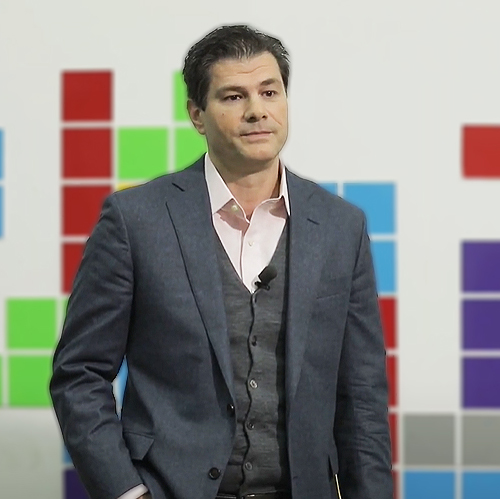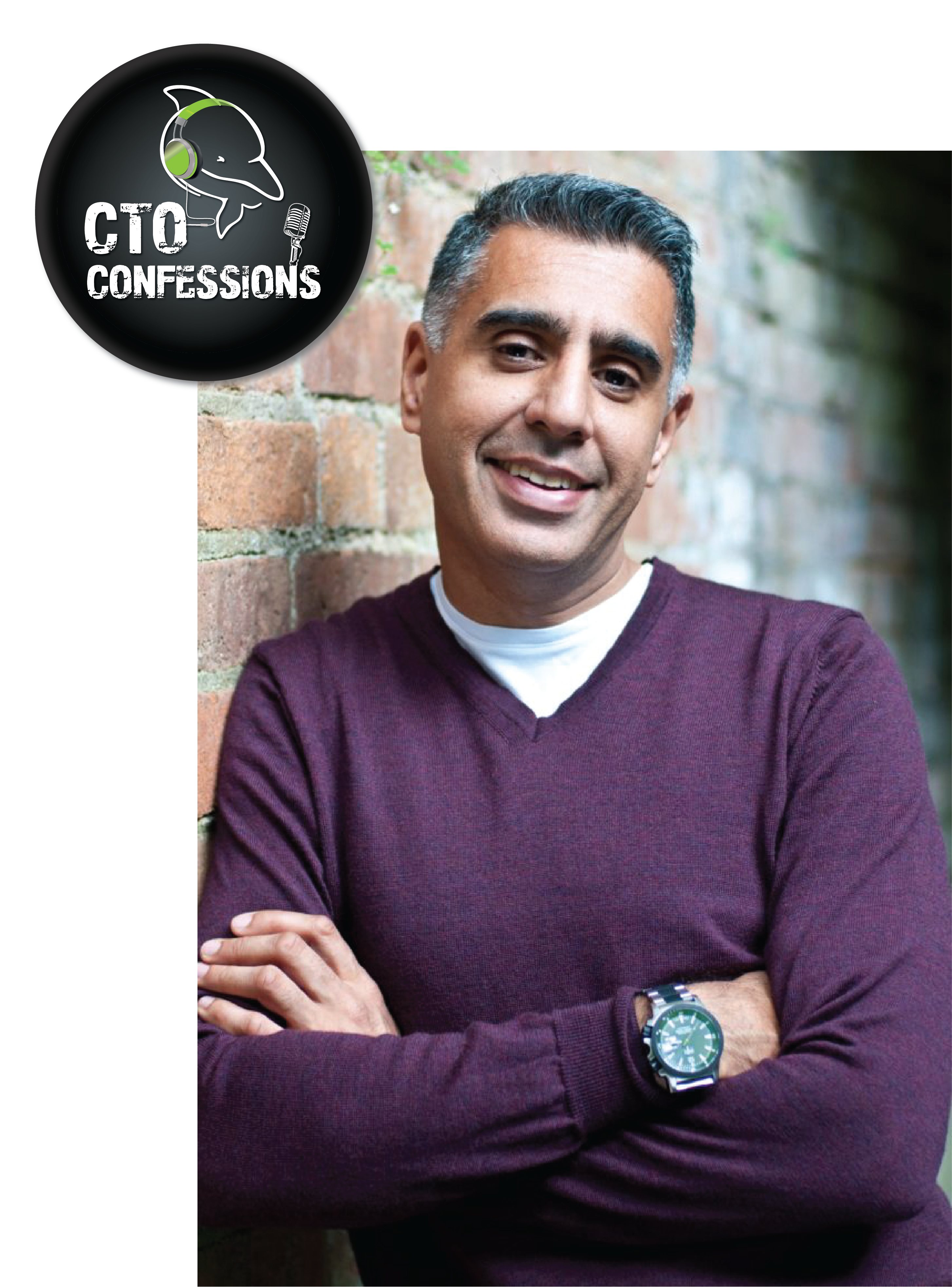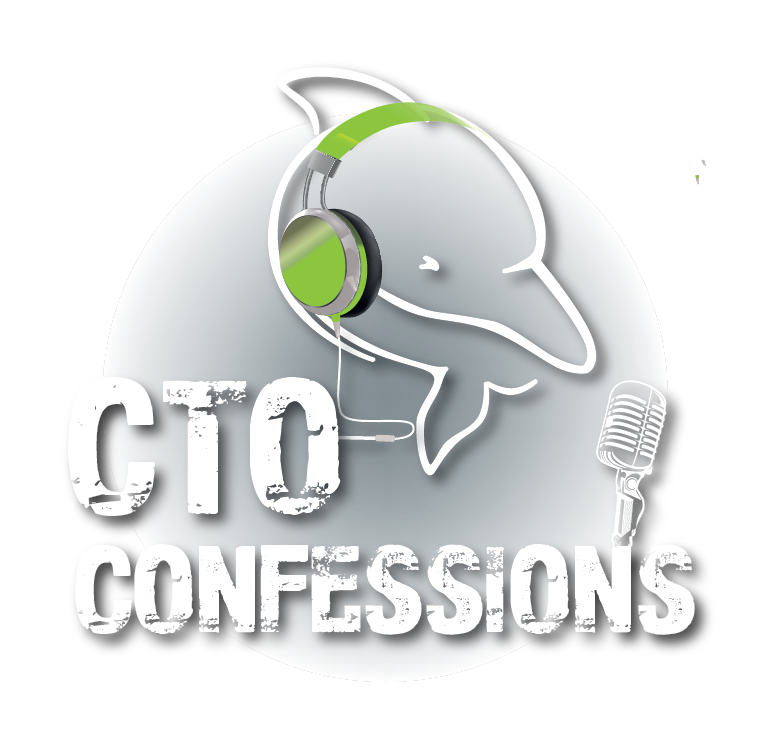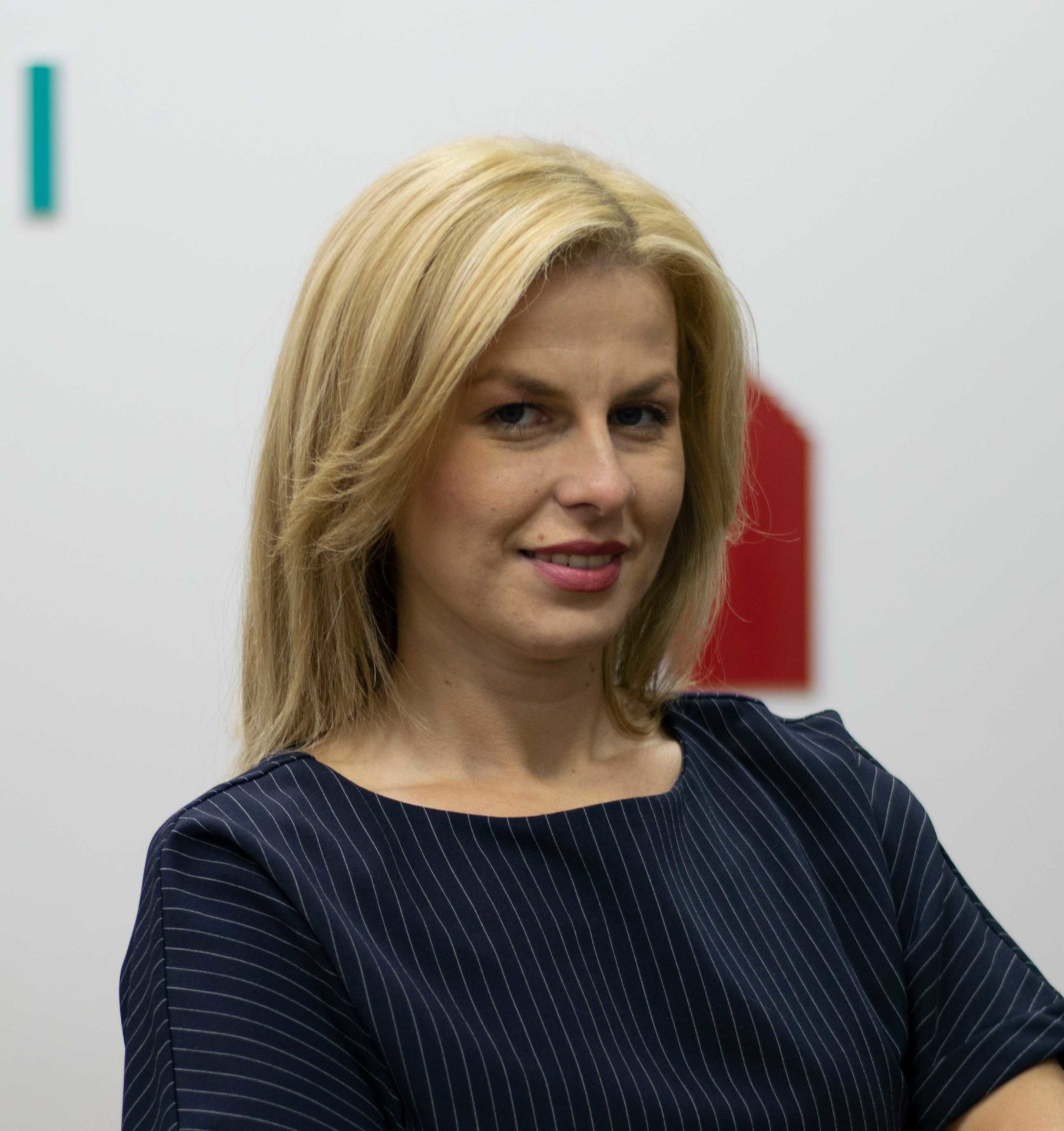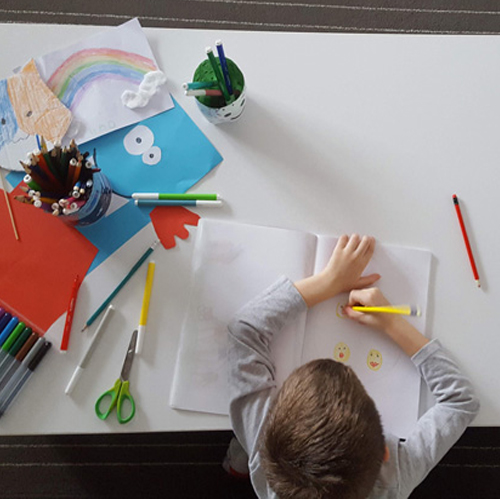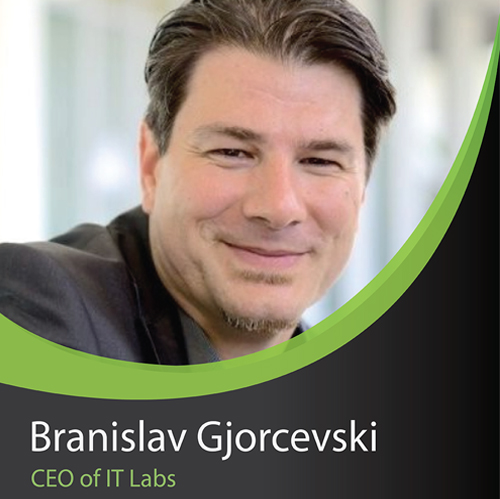Workplace Positive Psychology
Positive psychology is a relatively new branch of psychology developed due to its historical over-focus on mental illness, research, and treatment. The focus on mental illnesses has resulted in psychologists giving attention only to the problems, weaknesses, and difficulties individuals face. Thus neglecting optimism, hope, and pleasure, which are extremely important to function normally. Positive psychology is based on the belief that people want to live a thoughtful and fulfilling life, a life worth living, while also wanting to develop the best version of themselves.
It's no wonder that until recently, most of the articles written about human personality were treating depression, sickness, or in other words, "what's wrong, and what to do so that the person can be healed." Still, very little was focused on what makes us happy, optimistic, and satisfied, i.e. " what's good in a person's life, how we can become happier, more satisfied, and also more productive."

The beginnings of positive psychology
The beginnings of positive psychology go back to 1988, when Martin Seligman became president of the American Psychological Association, and then founded the magazine Journal of Positive Psychology. Essentially the dilemma he highlighted is related to why psychologists were dedicated to guiding a person to reach a functioning state on a scale from -8 to 0, and not focusing on bringing a person from 0 to 8+.
Until 15 years ago, research done on positive emotions was almost a neglected topic compared to the number of studies done on negative emotions. At approximately that time, researchers felt the need to respond to questions related to human strengths and virtues and what conditions contribute to people being happy and working efficiently. Since then, as part of the positive psychology movement, there has been much-conducted research to show that happy people are more successful in many areas, including work, social relations, and better health. The experts often interpreted the connection between happiness and success as a premise that success makes people happy. But the results from longitudinal and experimental research made them see things from another point of view. Besides success influencing people's happiness, the results have shown that happiness can influence success by expanding their horizons, thinking, and behavior while using opportunities to upgrade their skills, make friends and set new goals.
Speaking about positive psychology at the workplace, experts suggest that it can influence everything – from attracting to retaining talent, but also for better productivity and employee satisfaction. Considering the everyday work dynamic, requirements, and challenges that employees face, focusing on positive things can be essential for every person.
How companies implement this?
Fortunately, most companies today have changed their relationship with employees by taking care of their well-being. By doing this, they emphasize employee's importance, but also their health. These companies have seen the need to introduce a special job role titled Chief Happiness Officer, who takes care of its employees' well-being. They do this by organizing different activities and events so people feel happy and fulfilled in the workplace. There are different opinions about how this could be implemented. Either by forming a special role or every manager leads a team to take over these responsibilities as part of their job description.
Positive psychology deals with how individuals, companies, and organizations can function optimally while also being happy and prosper. When it's applied in the workplace, it helps the managers successfully lead their teams, understand and motivate the employees, and achieve business growth. The biggest advantage of applying positive psychology is that it gives successful business results and employee satisfaction.
A very important thing for effective usage of positive psychologies scientific principles is recognizing, understanding, and using the innate power and strengths that employees possess. Everyone has different traits and personalities, and one of the recipes for success to get the most out of them is to focus on their potential and strengths.
In a Gallup study in 6 countries, the participants were asked for their opinion about what will help them be more successful in life – was it knowing their flaws are and how to overcome them, or knowing their strengths, and continuing to improve and develop. Most of the people answered that they would like to know their flaws, but the research shows that it is much more useful for individuals to know their strengths and upgrade professionally from that.
Research also shows that employees who have an everyday opportunity to use their strengths are three times more satisfied with their quality of life, six times more engaged at the workplace, and 15% less chance of quitting their job.
Companies and individuals who want to operate successfully, with people who want to live well and enjoy life, are more aware of positive psychology. That's why the interest in positive psychology in the last 20 years is rapidly expanding into business, public administration, education, and individual personal lives.
The concept of happiness in a work-related context
Positive psychology deals with positive thinking and positive emotions. It is trying to determine which factors contribute to the success and progress of the individual and group. One of her key concepts is the concept of happiness, and in that context, it is very interesting to see the results that this science has come up with. Particularly with its application in a work-related context.
• Happiness is partially genetics and destiny, but not entirely. The inheritance has a 50% influence on what constitutes happiness. This is interesting data, but the question is, what's with the remaining 50%? How much of an active role do we have in living better, being happier, and more satisfied?
• Every human being has their own "thermometer of happiness." Individuals will come back to their happiness level even after a very bad or good thing happens. Of course, if the person chooses not to take things into their own hands and start working on their happiness and satisfaction, the subsequent impact is their responsibility.
• One of the biggest enemies of happiness is making a comparison with other people. But, not just comparison with anyone. Research shows that people rarely compare or care about how much money Elon Musk and Jeff Bezos have. Knowing that someone similar to them has achieved a significantly higher level of success will influence their mood and satisfaction.
• Many different factors influence happiness, but most researchers agree that personal relations and social activities have a crucial influence in determining happiness. Friendships, and especially having someone to rely on, are perceived as more valuable than possessions. Even more than finance. Having this in mind, you can imagine how important personal relations are at the workplace and the working environment in which the employees have a strong connection. There is a good working atmosphere and teamwork.
• A person's happiness increases through engagements in so-called "flow experiences. " It is a state where people lose track of time and space. People in a state of flow are thrilled when they do activities they perceive as a challenge. Interestingly, data shows that people can arrive at a state of flow much easier than in recreational activities. That is why a company needs to get to know the employees and the activities that bring them the greatest pleasure. This is one of the greatest dexterities of exceptional managers.
• Over 65% of employees worldwide don't receive praise. Fact – employees desire praise at least once a week. Research shows that the human brain perceives positive feedback as greater social acknowledgment than receiving a financial award. This reward is particularly important for the millennials, who perceive feedback as one of the key aspects that give them pleasure. By this, we mean precise feedback that clearly states that the work they do is valued, and their effort is recognized. 75% of the current personnel consists of employees that require positive feedback; more precisely, people are raised with praise, so they expect the same thing in the workplace.
• For a long time, there was a dilemma of what law applied to being happy in the workplace and private life. The law of overflow or the law of compensation? This dilemma asks whether unhappy people in their private life become completely focused on reaching happiness and pleasure at the workplace. Or being happy at the workplace transfers into the rest of a person's life? Maybe you already guessed that the second one predominates – happiness possesses a curious power that transfers from one life field to another and makes life more thoughtful and fulfilled.
For all of these data and research results, conducted by this relatively young scientific branch, more and more become a field of interest for companies. Especially those companies that see the importance of their employees. These companies know that happy employees mean having better results, great products, and satisfied clients.
Frosina Zafirovska,
CHRO at IT Labs
How to switch off when your home is your office?

The physical office is a symbol of some kind, a place where a person can dig in on the tasks and then leave it behind at the end of the day. Thus focusing on other segments of life such as friends, family, and hobbies. Considering that now the line is blurred and everyday living is mixed with other chores (e.g., helping kids with homeschooling), it’s becoming a challenge to focus on work and then unplug.
The other challenge is that your work is literally constantly at your side. The computer is near you, and in fact, your home is your office! So it’s easy to get caught into a cycle of “just checking something“, and finding yourself finishing up things all the time. This can lead you to burnout without you even realizing it. So, to prevent this from happening, you can do something about it, while social distancing and keeping safe.
Change the routine
We are creatures of habit. Just imagine how many things you are doing because it’s part of your routine. The longer you follow a pattern, it becomes part of your identity, and then it becomes really difficult to leave it behind. So, if you are constantly checking emails on your phone (even when it’s 9 PM), you should work on establishing a new routine and teach yourself when to switch off. Staring at your phone late at night doesn’t help your sleep, so if you are scared that you will miss something even if you blink, you really should work on that, because it is a constant pursuit of a damaging illusion, that you can control everything, when in fact your bad habits are controlling you.
In this situation, you are probably affected by something called Attention Residue, a condition defined as having persisting thoughts about a task while performing another task. This leads to you constantly doing tasks in your mind. So when working from home, you are working without knowing when to stop jumping from one thing to another. It’s a cycle that you need to break free from because when the work you do is constantly staring at you, you can’t concentrate and be focused enough.
 The out of sight rule
The out of sight rule
The computer, the phone are symbols that your brain connects with work and tasks. And when your home is your office, that computer screen is your reminder that there is stuff to do. Also, the constant notifications on your phone don’t help if you want to switch off. So, turn off every notification that disrupts your personal time. There is another trick you can do. Physical separation is really important. In this case, if you have suitable environmental conditions, separate the place where you work from the rest of your home, so you can really leave it behind.
Exercise
A light walk or a bicycle ride can put your mind at ease. Exercise has an impact not just on your physical wellbeing, but also your mental health. Something that is extremely important when life or work conditions have changed. You will naturally experience heightened stress because of the new circumstances, such as being constantly at home, not knowing how to break apart from the tasks, and when to switch off. Find half an hour after the working day is done, and dedicate it to exercise or some relaxation practice. Even your home can be the place where you conduct these destressing activities. For example, you can start practicing yoga. Just choose the activity that fits you best.
Find your hobby
Reading, cooking, painting, DIY crafts, even watching your favorite show is a good way to distract your mind and constructively spend your personal time. Maybe if you get yourself into a bigger project (e.g. doing something for your home) that constantly needs your attention, will help you shift the routine.
Family time
It sounds like a cliché. In this situation, it’s more like a paradox. Aren’t you already at home with everyone? Well, in fact, it is different. Quality time with your partner and kids is completely different from constantly being in the same space at the same time. It’s easy to get the impression that if you are working remotely with your loved ones around you, you’ve done your part. But between tasks, meetings, and everything else that working remotely brings along, can you honestly say that you are spending quality time with the people around you? It’s time to change one's perspective on that. If you’ve found that balance, kudos to you!
Maja Tanushoska
Digital Marketing Specialist
How to deal with impostor syndrome?

"Let me let you in on a secret: most days, I feel like a fraud. Like I don't really know what I'm doing "– These are the words from the founder and CEO of Atlassian, Mike Cannon-Brookes, who gave a TED talk on this subject. In this talk, Brookes speaks about the impostor syndrome as a thing that has followed him his whole life, and when you hear that kind of thing from a person like him, you get a groundbreaking perspective. You are not alone, and you are not the only one feeling like a fraud.
It has little to do with confidence
Impostor Syndrome can be a scary, overwhelming feeling. It's like you are always waiting for that email, that call, the message, the SWAT team to swipe you out and reveal that you are a fraud. You can be a confident, intelligent person, but at the same time, no amount of success can convince you that you deserve it, even if all the evidence says otherwise. It's that scary realization when you walk in a room filled with people, coworkers, team members, and you feel that they will point the finger towards you while muttering, "you are here by mistake," and "you don't have the answers." The fact is, no one has all the answers. This is a challenge for a perfectionist mind; it's very hard to convince itself that someone out there doesn't have it all worked out. It is a constant chase, and it can be exhausting.
But to help you get the right perspective and prevent the SWAT team from coming, you have to see this from a positive direction.
And yes, there is a positive side to this.
 On a positive personal note
On a positive personal note
Now, as a person who works in a creative field and has years of experience in marketing, I too, have experienced this syndrome. For years, I didn't know that it was a common pattern. It prevented me from speaking up when I knew I was right, to stand up for myself or others, but also it led me to paths where I put unreasonable pressure on myself through a feeling that I must DO MORE, because whatever I did was never enough. This is all down to the impostor syndrome, whispering insecurities into your ear. If you raise your hand, spill out your thoughts, then they will find out for sure that you are a fraud. If you are silent, that monster can somehow present itself as an imaginary paranoia. But after years and years of facing this, I have managed to reason with the monster (we have an occasional chat, here or there). Here are some things I have learned. My hope in sharing these, you can see the positive side of all this.
The lessons learned
Own what you have accomplished
Do you cringe when someone compliments you? A compliment! To you? They must be mistaken. It is a very common situation for people with impostor syndrome to feel that they don't deserve compliments. Many times those are empty words to them. But you see (and this is something I've learned from my mistakes), you can make things unpleasant for the people around you if you refuse their kind words. They don't see your struggle. The boss, the colleague, or client is giving you recognition, and the proper way to deal with this is to OWN it. Say thank you, be happy with the result. You have good news! You are the person that got the job done and deserves the credit. Be reasonable; you are working with smart, capable people, so when they say kudos, believe in their judgment.
Share your thoughts with others
There is a saying that if people could hear our thoughts, we wouldn't have any friends. It can be loud in one's mind. There are so many traumas, experiences, emotions, and so many false assumptions. That is why it's healthy to share these thoughts of fraud, incompetence, underachieving, and doubts with others. People are awesome, they can give you a perspective you didn't even consider, or maybe sometimes it will help just to hear your thoughts out loud and see how ridiculous your impostor syndrome sounds.
Don't idolize other people's success
If the founder of Atlassian, with all of his accomplishments, can't see his success, you may want to rethink how you think. All these people around us have their struggles, challenges that you don't see. Heck, you can't see your own impostor syndrome! The unhealthiest thing to do when you are struggling with this syndrome is to measure yourself with others. That colleague knows everything; I have to be as good as that person; How come they always have the right answer? And other utter nonsense you are telling yourself.
Remind yourself that you are here for a reason
Why you are where you are now in your job, is not some whimsical, destiny related definition, but the reality – something on the way clicked. You got that job because you possess talent, character, knowledge, aspirations, and others saw that. That is why you are here now; the praise is real. There are no hidden agendas, no conspiracies of your incompetence, no SWAT team that will take you down because you are a fraud. And if in the future, you get promotion, appreciation, bonus, or something else that shows that your work is valued, add that to the list with reasons why you are here and doing what you are doing.
Perfectionism kills creativity

The beauty of not knowing the answers
Here's a new perspective I offer you. Isn't it awesome you don't know everything, and that you can make mistakes, fall and get back up? There is beauty in not knowing. It means there are so many things to learn, explore, get fresh perspectives, and new ideas. Just imagine if you knew everything. What a boring life that would be!
Maja Tanushoska
Digital Marketing Specialist
Talk about values with IT Labs CEO – Branislav Gjorcevski
Company values define the culture of an organization, speaking volumes about how it brings about realizing its vision, behaviors it encourages, and the environment it subsequently creates. In a way, values pave the path for current and future employees, addressing the important client question: what kind of company are we going to collaborate with?
On the subject of values, we had a very insightful conversation with IT Labs CEO, Branislav Gjorcevski (Banne) who gave his perspective on the importance of having core values, what they mean, and how the perception of them has changed in today's business environment.
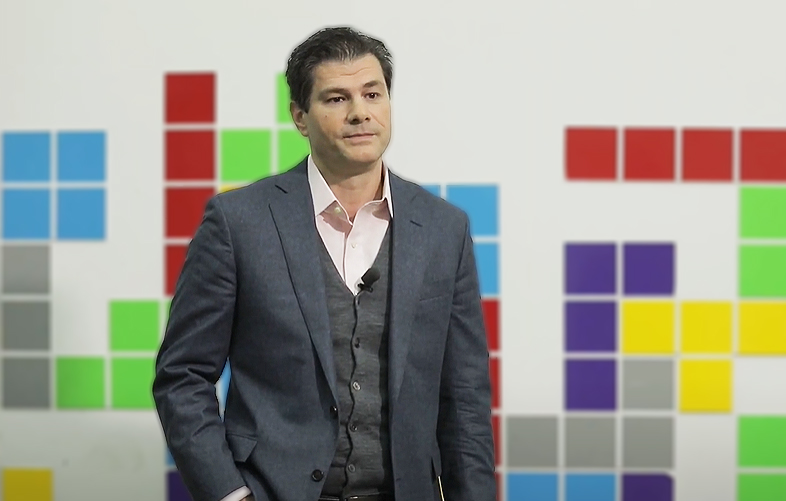
Banne: Currently there is an incoming high tide with lots of fish, we are waiting against the current :)
ITL: So, speaking about core company values and their importance, how do you see them: Do you seem them as aspiration or perfection?
Banne: I think neither. I believe that values are a representation/description of us at a given moment in time. The terms that describe aspiration are simply aspirations, not values. And aspirations that tend to perfection would be described as goals, not values. Values are things that we believe in, things that simply 'are.'
ITL: Values should be compact, insightful, and on point. Is it that "easy " to define them?
Banne: Not really. It's hard to boil down values to simple words. After all, simplicity is very hard. But at the end of the day, if we simply look at our core beliefs and keep it simple, it is doable.
ITL: If we make a comparison, did things changed on how we see values in today's business environment? Do they still hold a top spot in defining a company?
Banne: Oh yes. If we describe values as beliefs at a given moment, then if we transform ourselves (for any reason), those beliefs will change over time. 'Updating' the values means updating the beliefs of this current period. They may remain the same or subtly change. As for us here at IT Labs, our values have remained pretty consistent over time (I don't know if that is a good thing or not :).
ITL: Is it possible to find people that completely represent the values defined by a company? There are some debates that the values should come from inside, from the employees themselves.
Banne: Values indeed come from the employees themselves. If you trace it back, the core group hired the rest of the group, and if you hire by values then you have replication of values to the rest of the team. It would be very hard to find people that represent 100% of all the values, but it should be pretty close.
ITL: What about the client's point of view? Are values make or break moment when someone is looking for a company to work with?
Banne: That is true. But many companies misrepresent their values to clients, so clients have a hard time figuring out what is true. In theory, one company should just state what they believe in and have values be the matchmaker with the clients. Finding a client with similar culture makes communication a lot easier.
ITL: What is the biggest misconception about core values?
Banne: That they (values) are something to strive for. One company either believes-in and has integrity, or not so much. Wanting to have integrity is a wish. Having a transformational strategy about it makes it a goal, but not yet a value.
ITL: Things change quickly, and companies are trying to adapt their work environment to the new behavior of the employees, but also the business climate. How did values change in time?
Banne: They change only by us wanting to be better with each cycle. In theory, it should always be a positive transformation, regardless of the business climate. When the climate changes, it's a great time to review the current state of the culture and values and see if we deviated much or not at all.
ITL: This year, IT Labs made a change in defining the core values, and the employee's opinion had a major influence in shaping the definition. What is your take on the whole process?
Banne: I think that given that people with the same values brought in the new employees, they totally represent the overall culture. The definitions of the values (the words) were changed but the essence of our values hasn't, and that's completely in line with the core values that we've always had. It was a much-needed update for better clarity and more transparency on the internal beliefs.
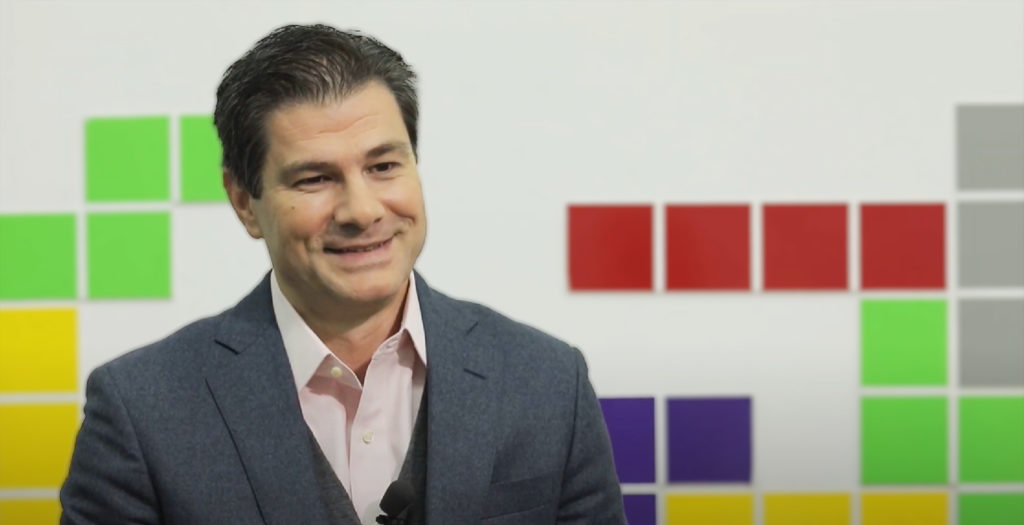
Banne: In theory, a challenge in a situation like this would be a red flag. That means that there are different groups with different values. In our case, the core group was in total alignment with the rest of the team, which shows a fantastic execution of the expansion strategy, especially by the HR and recruiting teams.
ITL: What advice would you give to another CEO that wants to do the process of redefining the values as IT Labs did?
Banne: I think the process of revisiting values can be a great indicator of how much the core beliefs have changed. Also, how much they have been distributed over time to the wider group of people within the organization. A leader should pay attention to feedback from the wider team, their understanding of the values, and reflect on the differences if any. Any concerning differences could be indicators of poor hiring or poor communication and transfer of culture from one group to another.
ITL: Thank you, Bane, for the insightful conversation.
Banne: You're very welcome anytime.
Maja Tanushoska
Digital Marketing Specialist
The benefits of having an internship program
The process of finding the right talent that will fit with the company culture is challenging alone. At the same time, you want people that possess values that align with that of the organization. We get it! It's tough going. In the pool of people with great resumes or maybe the lack of it, the HR department faces a really big question: how can you have active involvement and be the decision-maker in molding a talent right from the start, especially when you are an IT company? The answer is very simple – a company should develop an internship program. This is why.
 The bridge between the talent and opportunity
The bridge between the talent and opportunity
Yes, trying to find a talent that fits the requirements for a particular job can be a challenge. This is because you don't choose a person just based on the resume. That person should possess soft skills and personal traits that add to what's written down on paper. So the question arises: How can you develop talent instead of looking for it?
Additionally, you will find young talents who have theoretical knowledge, which on its own, simply isn't enough to be competitive in the tech industry. So, how do you find the middle ground in this? One of the answers is developing an internship program that will allow your company to mold the next tech generation, and create conditions for interns that will lead to full employment. This is a win-win situation. If you are a graduate that faces the competition and has no practical knowledge, being part of an internship program is a great opportunity to overcome this obstacle. The internship program is literally the bridge between the talent and the chance to become a permanent member of the team or be ready to face the competition on the field.
Companies that have internship programs also have a great ratio between interns that became employees. IT Labs is a great example of this – our program dates from 2010, and over 95% of our interns have become permanent members of our team.
It will give you a perspective on how things change
Do you think you know the talent market? Think again. Things are changing fast with every new generation. They think, behave, and feel differently from the previous one. Your company should be able to catch that on time because the new generations are your future employees, and if you don't see how things are changing, you won't be able to provide what they need or expect. There are a number of important things that companies should be aware of - the employees want to be understood, accepted, and easily adjusted too. You can't create the conditions to do that if you don't know how the new generation thinks or feels.
The internship program is the best way for your company to get introduced to the new generation, and give you a fresh perspective on how things will develop so that you can adapt on time. This can be interpreted in lots of things, starting from how a job position is perceived, introducing new benefits, and create better environments for work.

Develop mentorship and leadership skills
It's not easy to be a mentor. It's a valuable skill that connects knowledge with the ability to share that knowledge while still delivering tasks. Having employees who actively mentor others and have a leadership role in molding the new tech generation makes your company stronger. This is because you are also investing in the skills of your current team. The more often they practice these skills, the better outcome you will have for your organization and the business culture you nurture.
It simplifies the hiring process
Having an internship program is a way for the company to meet future employees. Scanning the talent market and searching for the right person can be time-consuming. The whole process can be simplified if you create strategically and well thought of internship programs that will attract talented people eager to learn, and also motivate them to contribute with their ideas. It is a two-way street! Yes, it is an opportunity to train people and adjust them to the company culture and see if they fit with your vision and values. At the same time, this is a fantastic opportunity for a company to embrace changes in the market and get a fresh perspective. You never know what kind of initiative or idea can come from a talented young mind.
Giving back to the (tech) community
Having a direct role in developing the new tech generation isn't just a way for the company to find the best talent and adjust it to its surroundings and values. It's also a way to contribute to the big picture and to the whole tech community. It is one of the best ways to enrich the market, share knowledge, and prepare the next generation for what awaits, thus helping the tech industry itself.
Maja Tanushoska
Digital Marketing Specialist
The man behind the IT Labs mic - meet TC Gill
He is a person with an extraordinary professional journey and a persona that you’ll instantly recognize once you get to know him. He has a contagious, positive approach to work and life that motivates all around him to give their best. If you check his bio, you’ll find that you’re speaking to a man with an impressive background: a former engineer transformed into a business agility coach, as well as being the host of the IT Labs podcast CTO Confessions and Webinar series. That’s TC in a nutshell, but there’s so much more, which is why we set up an interview with the man behind the IT Labs mic.
ITL: Hello, TC…
TC: Well helllloooooo. Always good to be speaking with you.
ITL: How is living in London at the moment?
TC: I work in London. Which is a city I love! Or the big smoke as we like to call it. The energy and diversity of thinking is huge there. You can feel it in the space. I remember speaking to a business leader who had settled in London, and of all the travels he had been on, he felt London was the most international in the world. A real constructive mix of cultures. I agree with this. The variation in people, their thinking, and ideas are huge there.
So, I work in London, but my home-home is in a lovely town at the heart of England called (Royal) Leamington Spa. In fact, there is a tree not far from our house that used to mark the center of England. I think the true mathematical/science-based location has shifted now, but historically Leamington was one of a number of towns/villages that tried to take this crown. I love it here as it’s a short walk out into the countryside, with reliable transport links to the north and South (London, etc.)
Love London, Love Leamington Spa, love the UK. Even in these challenging Covid19 times.
ITL: This COVID situation changed plenty of things overnight. How did things change for you?
TC: Well, it was an interesting time personally when the “interesting-times” landed on us all (i.e. Covid-19). I was in New York at the time helping out at the Business Agility Institute conference when the pandemic got announced. Once the conference had finished, I managed to get an early flight back to the UK. Just in time by the looks of it.
After self-isolating for two weeks away from my family in the same house (which was fun ?), we managed to get into a good routine as a family. My 12-year daughter slipped into a productive routine of schooling remotely. Rebecca, my partner, has done an absolutely heroic job of supporting our daughter and me. We are very lucky beneficiaries of her kindness and support.
As for work, I was in a period that meant that working from home was already part of my routine. When the Covid-19 hit, the work with IT Labs went up a few notches. This is around creating the tech community. The outcome of this has been the CTO confessions Podcast and Webinar series.
Though I prefer to be in the company of my team, working remotely with IT Labs CEO and his sales and marketing people has been hugely fun (and challenging). I just love the culture we have here. We are professional with a good serving of all the other activities and behaviors that bring out the best in people (a nice mix of learning, fun, and experimentation)
On the downside, not being able to visit family (especially my mum) has been tough. However, that is starting to ease up now.
ITL: Spending so much time at home has its perks. You are working and having fun as a host of IT Labs Podcast and Webinars.
TC: Yes, I love this. Meeting lots of interesting Tech leaders, leadership, and business transformation people. We’ve also been working on setting up the IT Labs Business Agility service offer. This is where the core of my passions reside. But interviewing people from all around the world and bringing those recordings to the tech community with insights and takeaways is great. It’s fun, and also a really smart way of supporting others. I love the idea of helping others and creating communities that do the same.
ITL: How does the process of prepаration look like for you for the Podcast and the Webinars?
TC: That’s a good question. It starts with a name. Either someone we know or someone interesting that has appeared on our radar. We prepare a document for them, knowledge of the person (why we find them interesting), and then extract out potential subjects and ideas.
We then proceed to have a discovery meeting with the potential guest, with myself, one of our tech leaders or co-founders. A warm chat to explore ideas. This then sets the scene for the headline topic and questions that can spark a thought-provoking conversation.
On the day of the recording, we have a nice warm-up session where we talk about “stuff.” This is so that host (me) and guests can connect on the human level and just relax. With my sense of humor and personal curiosity, we have a good conversation and set ourselves up for the recording. By the time we start, I like to think the guest is solely focused on the interactions between the two of us and not concerned about the recording of the session. I want to believe this creates a warm atmosphere to have an enlightened conversation.
ITL: You are an engineer, in love with business agility, and now a host. How does your background help with the preparation?
TC: I have lived and breathed technology for many years, from:
- Semiconductor engineering at university
- Acquiring a Bachelor of Engineering degree in Electronics
- Designing industrial embedded controllers (computers)
- Developing-designing embedded software systems
- Leading teams that do the above.
By “knowing”, “leading in”, and “living” technology, I feel gives me a good perspective. In the later years, my passions turned to help the amazing boys and girls that work in this field, work as high performing teams. So, I guess it’s a heady mix of experience, curiosity, and passion for an industry I love.
ITL: You are a big part of IT Labs initiative to share knowledge with the tech leaders through various channels (Podcast, Webinar, White Papers, Articles…). In your opinion, what are the biggest lessons that a tech leader can learn through our content?
TC: For me, it’s about sparking alternative thinking and developing a discussion around important topics. We here at IT Labs are passionate about the Tech community, and the role tech leaders play. It’s about putting these incredibly smart people more to the forefront of organizations, challenging them to stretch their ideas and be brave to try new things. This is what mine and IT Labs hopes are. Not forgetting the quality and innovation of what we deliver as tech leaders. It’s not just about outputs, but outcomes that serve the end customer and the wellbeing of the organization.
ITL: And what did you learn through this whole experience? You have an amazing chance to talk with people who walked the walk, which lessons had the biggest impact on you personally?
TC: The impact on me personally is the journey these leaders have taken. I always find this fascinating. The lessons there are inspirational and trigger new paths of curiosity for the listener. From the key takeaways, the journey creates deeper learning. Learning to learn almost, in the spirit of changing the game of one’s progression, and that of the teams we lead. I guess what I am talking to here is the human element of tech leadership.
ITL: What makes a great tech leader?
TC: Someone who has the following characteristics
- Great people leadership. Life-affirming leadership while delivering the outcomes that customers need. Making sure what they are working on is the right thing for the current time, with a solid business case, even if it’s an innovation in a market that is yet to be realized!
- Curious. Willing to experiment and encourage it in their teams.
- A people person. Understanding the human element of organizations
- Business Agility Leader: Someone that sees the importance of their role in the organization as a whole. Not just delivering what is asked of them, but the outcomes the organization needs.
ITL: Do you have a specific person in mind as an example? A person that is a fantastic leader in today’s world?
TC: Bill Gates. He is someone whom I look up to. On top of that, he’s a good person (I believe). His impact is far-reaching and still relevant. He holds many lessons and learning for leaders in technology and leadership in general. Not forgetting the philanthropic humanity activities with his wife.
ITL: And what are the biggest challenges in a world where technology changes at a fast pace?
TC: From an organization level, it’s about reinventing what organizations are doing and the way they go about it. From a systems-thinking perspective, it’s regarding the creation and maintenance of healthy social and operational systems within the org.
So, while we live in this “innovation storm,” it’s the speed of change that I think is the issue now. Change that batters these two systems (social and operational). The key here is to create more distributed leadership, with an increased number of people throughout the organization taking the lead in their local work, and then feeding back relevant information to the layers above. Again, there is a social and operational perspective on this. Both of which need to be maintained, refined, and maybe even reinvented periodically.
ITL: Which person would you like to interview in the future?
TC: Probably the singer Florence Welch (Florence and the Machine), and what she thinks about leading in technology. O… that won’t be possible. I see what you are saying… Yes, on reflection, she probably wouldn’t have much to say on technology. Maybe she could sing about it ?
Seriously though. It would have to be Bill Gates, and maybe his wife as well (on what it’s like living with a tech leader).
I just want to know more about a man who technologically went from technological advances to advance. Also, to know more about the mistakes.
Areas I would love to cover are:
- His journey as a leader
- His personal development over that journey
- How technology can be a force for life-affirming change
- His and his wife’s philanthropy
- Where he sees technology going
ITL: What’s your message to the tech leaders out there?
TC: I have lots of things to say on this subject, probably too much ? haha. I will try and keep it to the top three.
#1 Leading the organization:
To you, tech leaders… Don’t underestimate the importance of your role. Yes, of course, you are important to the technological side of the organization’s activities. What I am referring to is the Business Agility piece, i.e. seeing your role as important to the wellbeing of the company as a whole. Everything from serving the customer, the central actor in everything we do in and for the organization, and also the organization itself. Most (if not all, organizations) are woven into the digital fabric of the world. Anything the organization does touches technology in one way or another. So, it’s imperative that you and your teams sit alongside the other key activities in the organization, and collaborate on how they can run more smoothly with the best ideas and most progressive outcomes. You, the tech leader, understand the landscape of your current and future technology needs and driving these forward. Not just delivering what the business wants, but what it needs to grow and innovate continuously.
#2 People & Leadership:
Yes, we are delivering technology. And yes, that can seem very logical and easier to focus on in many respects. The “And” to this is that the people are equally important. The way you lead has a direct impact on the creativity, productivity, and innovation that your people will deliver. I’m going to point to a perspective of leadership that I train others in, which is Co-Active leadership. The time we have is not going to allow me to cover all its many facets and outcomes it can encourage. But what it does is deliver collaborative, transparent, challenging, productive work environments. One where all players in the game win; the people (including the leadership), the organization (including suppliers), and finally the customer themselves (Win3) .
#3 The right people:
Surround yourself with the right people around you. This isn’t just skilled individuals. This is people that have the right attitude, ones that are team players, and have an Agile mindset. Remove problem generators from your teams as soon as possible, no matter how smart they are. These toxic individuals are doing the teams and organization no favors in the long run. And by keeping them in their status quo, you are doing them no favors either.
Turn people into life-affirming leaders in their own right. Not only will this make your life easier, but there is also something noble and satisfying in knowing that you are growing people.
ITL: Well, thank you for your time TC. Actually, before we go, what’s your real name?
TC: Haha ? It’s a tricky one, but I like it. It’s just a challenge for others.
Wait for it. My real full name is Tarlochan Singh Gill. Though I am not a practicing Sikh, the middle name ‘Singh’ means Lion or Lion’s heart. My heritage is one of a warrior class that fought for justice and equality since the 17th century.
Fun fact: Sikihms was the first major religion to give women equal rights. Something we see a lot of in my family. Tough, strong women with good hearts that speak as equals.
And my first name! Sounds like something out of Game of Thrones, right!? Its pronounced “Tar-Lock-An”. It’s another interesting name, meaning the all-seeing eye.
ITL: Well, that was interesting, thanks for sharing that. Thanks again, TC.
TC: It’s been nice to share my thoughts and reinforce what I and IT labs are about. I look forward to another interview with one of our esteemed tech leader guests. Meanwhile, a big shout-out to our tech audience to subscribe to our Podcast on SoundCloud and iTunes, and make sure you follow us on Facebook, LinkedIn, and Twitter so you can be notified on time when we organize a new Webinar.
PS: Are you sure you can’t arrange an interview with Florence?
ITL: We’ll see what we can do TC ?
Maja Tanushoska
Digital Marketing Specialist
IT Labs Online Internship Program – Building the next tech generation
Sharing knowledge and having a direct role in building the next set of high-performing teams, is a major part of IT Labs working culture. It is our continuous aspiration to be actively involved in molding the new IT generation, which is why we created an internship program ten years ago. This year we decided to make changes and fully adapt the curriculum to remote learning. As a result, we carefully developed an Online Internship Program. After a month and a half of selection, we can finally say that our search for young talents is over, and they start the journey of learning at the beginning of July.
The beginning of summer is an exciting period for us at IT Labs. It is when we embrace the opportunity to develop the next and newest tech generation. In this period, we start our three-month internship program and open the doors of our office in Skopje for young-eager minds. Thus, introducing them to the IT Labs world filled with many exciting possibilities.
Motivated to bring the best from every generation, share new perspectives, and teach interns how to implement learned knowledge into practice, we here at IT Labs developed a highly successful internship program. One that has a great legacy, and at the same time, is continuously being upgraded to grasp the future.
This year, we decided to make a change and crafted an Online Internship Program. With over 200 entries for three different areas of learning, we can honestly say that we are more than pleased with the feedback from applicants.
What is the Online Internship Program?
The Online Internship Program preserves the same high-quality standards as before, but we have adjusted them to a fully online implementation from start to finish. Starting from initial entry (exam questions) to the recruitment process, where we select the best candidates, we then move into a process of learning and implementation of knowledge.
The interns will be guided by mentors with years of experience in worldwide projects, and are proven professionals in their respective fields.
One of the best perks of our program is that the candidates that will successfully complete it will have the opportunity to become permanent members of our team.
„The idea for an Online Internship Program came from the change in circumstances due to COVID-19. This quick adjustment is a testament to our ability to pave the way towards the future of learning. Training the new IT generations is an honor and an obligation that we take very seriously and also with lots of pride. I can say that the interns that had, or will have the opportunity to learn from our team, will be prepared for every challenge“ – says Frosina Zafirovska CHRO at IT Labs.
With that said, we wish a great warm welcome to the first generation of our Online Internship Program.
Maja Tanushoska
Digital Marketing Specialist
Keeping the human touch for full online recruitment
Digitalization is not new in the recruitment process. It has been here for long enough to become a regular part of each of its stages.
Sourcing is entirely online, and the recruitment process is using more and more online assessment tools. Interviewing, tech assessments, even personality and skills tests are done online using a wide variety of instruments. But what is crucial for a successful outcome in the recruitment process, was, and always will be the human touch.
In the past, we've all faced significant challenges with everything going virtual, including the in-person meetings necessary for creating and maintaining human contact. After all, the initial social interactions are an essential part of why someone decides to become a part of a company. The candidate's experience no longer lies only on the in-person interviews, but on all the interactions that can happen in the recruitment process. Now, more than ever, we should aim to create unique candidate experiences that have a narrative, that's well thought through and carried out effectively through the platforms we use to interact with them.
At IT Labs, we quickly adapted to the new situation, creating best practices so that the whole process of recruitment is effortless even in challenging times like these (i.e. COVID-19). The core idea is to create a unified experience, well designed so that the candidate can feel that every contact in the process is part of a whole.
When switching to full online recruitment processes, some essential items ideally need to be considered to enhance the candidate experience:
Be truthful
From the initial contacting to hiring, it's important to let the candidate know what to expect and when. Openly communicate the recruitment flow and the design of each stage. Present the roadmap so that they feel fully aware of where they are in their unique IT Labs recruitment journey. Provide details on time frames, tools used in the process, roles and names of people that the candidate will meet during the recruitment process. Explain what the expectations are as an outcome of each stage. During the interview, don't avoid addressing if the candidate is too close or too far from the camera. The eye contact is essential for giving the right impression and creating that human connection.
The best part of being involved in recruitment is matching people with their exciting future career opportunities. The tricky part is telling someone they are not a fit for a given role, but we have to be honest and be clear as it's part of the job. For those who are not hired for the open position, just be truthful in a life-affirming way. Whenever possible, communicate this message via voice (phone). Openly go through the reasons for the decision and discuss the potential future possibilities. If a phone call is not viable, don't keep the candidate waiting. Write a personalized letter explaining the unsuccessful application as soon as the decision is made.
Keep in touch
Now, more than ever, keep in touch with candidates. People will appreciate hearing from you, even if the update is not a final decision. Go back to them and communicate that the process is still running for them. We are all facing uncertain times right now, so bringing clarity and communication goes a long way for all candidates and recruiters. Interacting at all stages of the recruitment process and maintaining contact via multiple channels of communication will ensure that candidates feel looked after and respected.

How were you feeling on your first day on the job? Nervous? With a lot of questions on your mind? Now, imagine that in the middle of a pandemic and having to work remotely. You have to agree; it's not an ideal situation. The onboarding process is a crucial part of making the new reality acceptable for the new hire. Making your onboarding process online is not enough. It needs to be as personal as possible. Adding a simple gesture such as sending a hiring kit or a team t-shirt will add another dimension to it. Sending a personalized welcome email on the first day and a simple social media post, welcoming them to the team should help them feel appreciated. Be there for the new hires. Ask them how they are doing. Answer their questions timely, schedule video calls to make sure they feel welcomed and prepared, and ensure their team and line manager are responding to their needs.
Empathy above all else
In these turbulent and challenging times, having the capacity to understand others is one of the most vital qualities one can have, whether it's with current employees or prospective ones. Everybody is trying to make the best of a bad situation, people have a lot going on right now, and anxiety is high. Let's be respectful and understand that candidates may not get back instantly, or their circumstances can change quickly. Putting ourselves in other people's shoes and imagining what they're experiencing helps us to react to stressful situations with kindness and compassion, which are essential during times of uncertainty, right?
Biljana Stefkov
Senior Recruiter at IT Labs
What IT Labs employees do while stuck indoors?
Staying at home is not just a great way to protect ourselves and the people around us, but also it is an essential moral measure to help the authorities flatten the curve. The fact is, during the pandemic, concerts, workshops, cinemas, museums, bars and sports events are cancelled or closed, and we are all encouraged to social-distance. So what can you do with all of your free time while indoors?

The current events are a whole new situation for all of us, but it shouldn’t be as bad as it sounds. Psychologically, having rituals and rules at home are essential for our well-being. Possibly you were extremely busy to exercise and get back into shape before? Or maybe you didn’t have time to prepare and eat slow-cooked food? Healthy rituals translate into being a healthy person, and now is the perfect time to dedicate some time to designing and setting new rules and routines at home.
Let’s give that creativity that’s been asleep in you a wake-up call. It is there; it’s just been dormant while you were super-busy doing all your different duties. So let’s find what makes you happy during your time at home.
As a start, you can set a healthy time to wake up and to go to bed.
Even if you are not seeing anyone during the day, take off your pyjamas in the morning, put on some comfortable clothes, brush your teeth and get going. If you don’t have any idea of how you can be creative, please be inspired by some of the examples presented below on how our team is spending their spare time in their lovely abodes:
Aleksandra Angelovska
I never thought I would be able to work out at home. To be honest, even though the last couple of years, I’m physically active a lot, I never do workouts at home. I prefer the group cardio workouts where you are surrounded by people, you are chatting before the workout and during the brakes and you are motivated by the crowd to give more from yourself.

But as social distancing continues and gyms and exercise studios are closed as a protective measure that prevents spreading the coronavirus, a lot of people are changing their workout habits, so am I, even though I must admit I was lazy at the beginning.
I am a big fan of effective training that does a total body workout, so I started to practice those training after working hours. I really feel much better after that. Good music and gym clothes on during the workout is a must. The workouts that I follow come up with embedded music and the focus is on mixed martial arts, sit-ups, pushups, kicks, jumps, exercise for every part of your body.
Things are changing, my room became my WFH office and working out at home became my routine.
It is good to have things that occupy your spare time outside of your working hours during this quarantine time, so I also like to spend my time with my family, online chats with friends, watching movies, cooking, etc.
Angela Trenchevska
It can be challenging to stay at home with kids and try ignoring the good weather outside. But there is always a way to keep children entertained even when they spend the whole day at home.
There are lots of activities that can be done, and they can also be fun for the whole family. We usually spend our time playing board games, computer games, table soccer, make creative DIY crafts, watching movies and cartoons, putting things in pots or bottles (for example put straws in a bottle), playing with kitchen dishes, clothes pegs, hide and seek and many more, depending on the child’s age.

And if you need some time to have the coffee in peace and you do not want to get up at 5 AM than give the kids something they haven’t seen before. Like a piece of wood for sliding balls and cars and try to hit things placed on the ground. You’ll get at least 30 min peace. In case you have no idea and inspiration for games that can be played at home you can always find some on the Internet.
Maja Lazarovska
DIY crafts are the perfect way to forget that you are at home. For me, it’s like a trip through your imagination, exploring the hidden parts of your creativity.
If there is no specific occasion like a birthday or holiday, you can always find inspiration from your home. And since now we are spending lots of time in the house, just take a moment to think about what you need, what would make your room look nicer, what is causing you trouble, and you finally need to organize. For sure you will come up with some.
There are many ideas online which I usually use just as a starting point. Seeing such nice crafts from real passionates truly boosts my creativity. And then I create my own unique project in my head. Of course, given the materials I have at home, I rarely buy extra stuff.
So it’s fun, it’s cheap, and definitely a boredom killer.

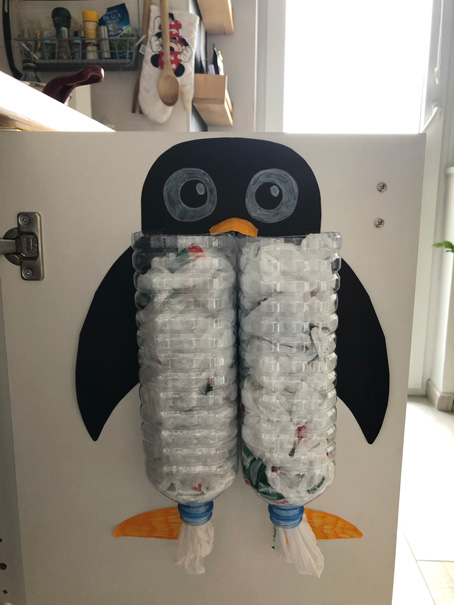
Risto Ristov

As the coronavirus is spreading throughout the world, we are all spending more and more time at our homes. Restaurants, bars, pubs are all closed, and more people are cooking at home while self-quarantined.
Cooking, in combination with music, is what is called behavioural activation. It allows me personally to channel all my fears in these challenging times. Of course, part of it because it satisfies an immediate need, but also because it relaxes me and makes me feel productive as it certainly brings up creativity. It helps me focus on the task at hand during which I feel engaged because I need to taste, to make decisions, to add or subtract ingredients. At the end of the day, cooking is an art.
Aleksandra Koceva
Staying at home, it’s not such a bad thing after all. Despite all the negative sides of this situation, many of us can find interest in doing different things. Even when everything else is on hold, our creativity is always here to take place. Being at home these days is important, so now is the period to spend some time on our hobbies or even start a new one. My hobby and favourite thing to do in these days is painting. This is one of many other creative things that can keep you entertained for hours and make you lose track of time. It doesn’t even matter if you don’t have a talent or you don’t know how to do it because if you like it, you will simply enjoy it. The reason I love doing paintings is because painting is a great way to release your inner thoughts and the best way to release stress. This is how I found a way to entertain myself after work during this isolation period.


Like mine, or other peoples hobbies? Have something different on your mind? Just do it. Do not forget that productivity leads to increased happiness, and that’s why I am encouraging you to find what makes you happy at home, and spend some time doing it.
In the past month, we dedicated two articles on the current COVID-19 pandemic. If you didn’t have a chance to read the previous articles, in which we pointed on two challenges –professional advice on how to sustain your mental health during COVID-19, and some ideas on how to spend your time and have fun during the quarantine, please take a look.
Giving back to the tech community
Hello friends,
I know we are all going through challenges in these disruptive and possibly concerning times.
Firstly I would like to send you wishes of wellness to you and your loved ones. I hope you are all keeping safe. Like you, I care deeply about my staff. I am proud of all of my teams, the leadership, developers, operations and all the other essential functions that we all too easily take for granted. They have been amazing troopers in handling the current situation, making the needed adjustments, with our productivity actually increasing!
In an effort to be proactive and valuable during this world pandemic, we asked ourselves what value could we contribute to our communities, in addition to what we are already doing. We realized that the distribution of our value could be even more comprehensive than what it is today. Instead of being communicated internally, with our clients, their customers, our advisers, investors, and partners, we could just share it with the world. To that regard, we put together a content force, comprised of members of the senior technical team who have started several new initiatives:
- White papers, to be released as often as possible, featuring technical, operational and talent best practices.
- Podcast 'CTO Confessions' led by our truly, agile coach, TC Gill, on varied subjects and guest to spark new thinking in the business and technological world.
- Host webinars, moderated by TC Gill, inviting some of the most senior technical experts to talk about their lessons learned, and sharing their wisdom to the world.
- Data-centric, pandemic-related projects, such as making delivering products/solutions to the community of developers, focused on solving real-life problems around the current and future pandemic.
- Creating insightful newsletters, acting as an efficient vehicle to get this valuable content over to you regularly and promptly.
Our team did a fantastic job of coming up with ideas and content that can serve our community of technology leaders. I can't wait to share it all with you.
Over the years, we have gained a lot of experience in handling many aspects of developing technology, platforms, processes, and even ventures. We've accumulated a lot of lessons learned (or, scars) that we are thrilled to share with the community of tech leaders in the hope that it assists you in your endeavours and challenges.
Talk to you soon!
Branislav 'Banne' Gjorcevski
CEO Of IT Labs







 The out of sight rule
The out of sight rule
 On a
On a 